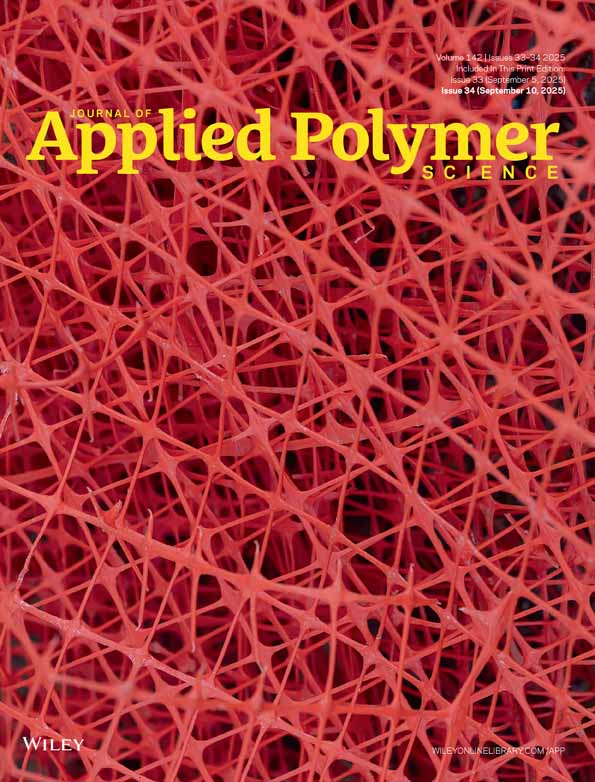A high-performance bismaleimide resin with good processing characteristics
Abstract
A new bismaleimide (BMI) resin system, designated 4504, with excellent heat resistance and good mechanical properties for advanced composites was developed. The 4504 resin was made up of 4,4′-bismaleimidodiphenyl methane, diallyl bisphenol A, and desirable catalysts. The reactivity of 4504 was investigated by gel characteristics and differential scanning calorimetry (DSC). Data showed that 4504 had a long work life under 100°C, but would gel within 7 min or 40 s at 140 or 160°C, respectively. The glass transition temperature (Tg) and heat-deflection temperature (HDT) of the cured 4504 resin were 315 and 290°C, respectively, which were much higher than the postcure temperature (200°C). In addition, the cured resin is also tough. Thermogravimetric analysis (TGA) in a nitrogen atmosphere revealed that the neat resin was stable up to 450°C; its char yield at 700°C under anaerobic conditions was 29.4%. Carbon fiber T300 laminates based on 4504 were prepared and characterized. In the case of short-beam (SBS) strength, when tested at 230°C, 51% of the original room temperature strength was retained. © 1996 John Wiley & Sons, Inc.




